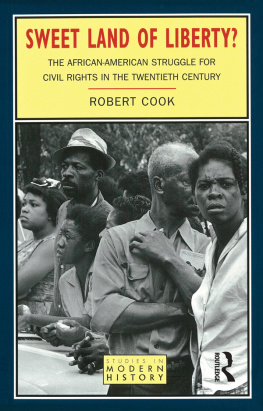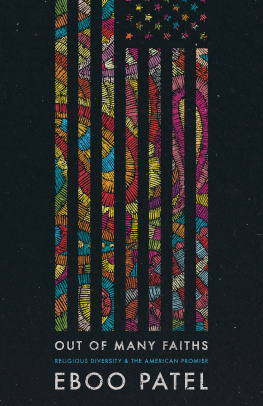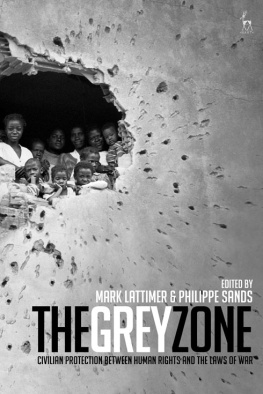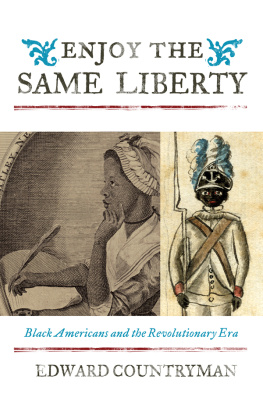Redemption Song The Promise of American Diversity
Values for the 21st Century
Robert L. Lattimer
Copyright 2021 Robert L. Lattimer
All rights reserved
First Edition
PAGE PUBLISHING, INC.
Conneaut Lake, PA
First originally published by Page Publishing 202 1
ISBN 978-1-6624-1834-1 (hc)
ISBN 978-1-6624-1833-4 (digital)
Printed in the United States of America
Table of Contents
A people that values its privileges above its principles soon loses both.
Dwight D. Eisenhower
This book is dedicated to the following:
Dr. R. Roosevelt Thomas Jr., who was the founder and president of the American Institute for Managing Diversity Inc., located at Morehouse College, is the author of more than seven books on the topic of diversity, who spent thousands of hours providing me his wisdom. He was a special intellectual gift to me and to so many others; Dr. Thomas was a true professional, and I respected him greatly.
Professor Lucy Taksa, PhD, is professor of management and the director of Centre for Workforce Futures, at Macquarie University Business SchoolSydney, Australia, whereupon there were many working collaborations between the two of us (far too few, I must say) involving Rutgers University, Macquarie University, the University of Paris at Dauphine, and the Martin Luther King Center at Atlanta, Georgia. Lucy, to learn from you is a growth experience; you are a true professional.
Larry Baytos, formally executive vice president at the Quaker Oaks Company, was most often referred to as the honest broker who had the strategic vision and relationship skills to connect Dr. Thomass consulting group with one of the worlds most respected consulting firms, Towers Perrin, thus providing a win-win situation within the world of the competitive marketplace; thank you, Larry, for your strategic skills and, of course, for your friendship.
Rollie Stichweh, the managing partner at Towers Perrin, recognizing the marketplaces competitive advantage to provide the Towers Perrin firm a profit and to help make the world a better place, upon Larry Baytoss counsel, and at his and my leadership, acquired Dr. Thomass consulting organization, and as they say, the rest is history. Being supported by the vast resources at Towers Perrin, the diversity consulting practice became the worlds largest in terms of the number of clients, size of the practice, and applied research conducted. Thank you, Rollie, for valuing diversity at so many levels.
Thabo Mbeki, the second president of the truly free and democratic Republic of South Africa, following the presidency of Nelson Mandela, you and Tamsanqa Max Maisela, executive chairman of the South African Post Office and Post Bank, were men of the highest integrity and vision and true examples of excellence in public service. It was a pleasure working with both of you; thank you for the opportunity.
Judith Griffey, a former partner at Towers Perrin consulting, a person of integrity, and a highly talented and skilled executive-level consultant with boardroom presence, was the first person that I hired from within Towers Perrin to provide additional leadership for the global diversity consulting practice which I led. Judith always had my back. I can never thank Judith enough for her many contributions; thank you, Judith, for always being a true professional.
Carl Van Horn, distinguished professor of Public Policy at the Edward J. Bloustein School of Planning and Public Policy and director at the John J. Heldrich Center for Workforce Development at Rutgers, The State University of New Jersey, had the vision to establish the Office of Diversity Studies, within the Heldrich Center, for which I was appointed the scholar. Our renowned annual symposiums, the State of Workforce Diversity, had become the leading international symposium for the presentation of the leading research and trends regarding the topic of diversity; thank you, Carl, for our collaborative and leading edge work.
Foreword
I have found it to be a rich discussion what the Swedish economist Gunnar Myrdal, writing in 1944, and presented by Jon Meacham in his book, The Soul of America , the battle for our better angels, called the American Creed: A devotion to the principles of liberty, of self-government, and of equal opportunity for all regardless of race, gender, religion, or nation of origin. The genius of America lies in its capacity to forge a single nation from peoples of remarkably diverse racial, religious, and ethnic origins; the American Creed envisages a nation composed of individuals making their own choices and accountable to themselves, it is what all Americans should learn, because it is what binds all Americans together.
In Robert Lattimers The Promise of American Diversity: New Values for the Twenty-First Century , he reaffirms the beauty of American diversity within the American context and the need to recapture that essence, which made America truly a great country, though not a perfect one. Roberts concept of American diversity rest solidly within the values of liberty, freedom, opportunity, justice, and economic equality.
Diversity today encompasses people from every corner of the globe with varying cultures, languages, and religions. It encompasses both genders, spans the entire age spectrum; it is that spectrum that made America great, not the need to be so.
My life and that of my parents and three sisters are but one example of the personification of the American storya story that Robert is framing through the lens of the twenty-first century, that represents the promise of American diversity and its future, by resetting old values to new ones, which is my story and that of so many others, different but similar to me.
My parents, my three sisters, and I were born in South Korea, not the ultra-modern South Korea of today, and we struggled economically upon immigrating to America in 1976; I was thirteen years of age and five feet, one inch tall, yet we were fortunate.
Before coming to America, I imagined so many things, so many wonderful things about this place. I had good dreams, but mostly, I read a lot about America and of its opportunities, things one could do, big cities, supermarkets, and the like. I did what most Korean kids doI studied, and my sisters did the same. I even remember, to this day, reading an article in Time Magazine describing Asian Americans as the model minority. I now know what that meant then, to assimilate!
Once in America, and completing my high school with a grade point average of 3.4 out of a possible 4.0, I decided to stay close to home, to support the wishes of my parents as I considered what college to attend, and as a result, I graduated with a bachelor of science degree in chemical engineering from Manhattan College and continued my studies completing a master of science degree in environmental engineering.
After college, I entered the corporate world working for some of Americas best-known companies, such as Colgate Palmolive, Johnson & Johnson, and currently Teva Pharmaceutical, now at the senior director level, and although the work has been demanding, it has also been rewarding.








